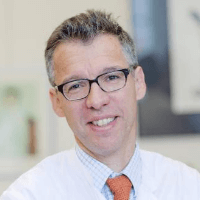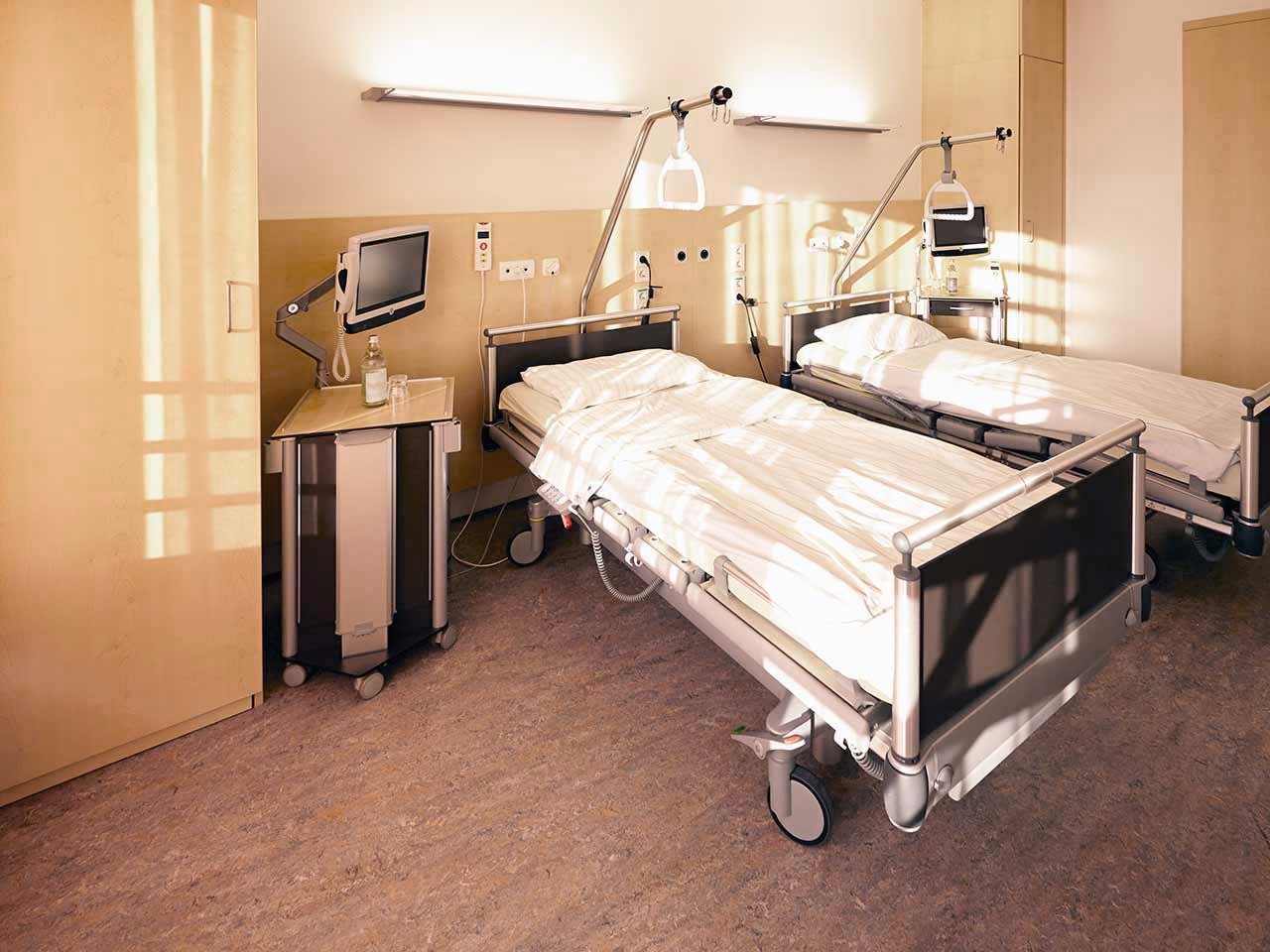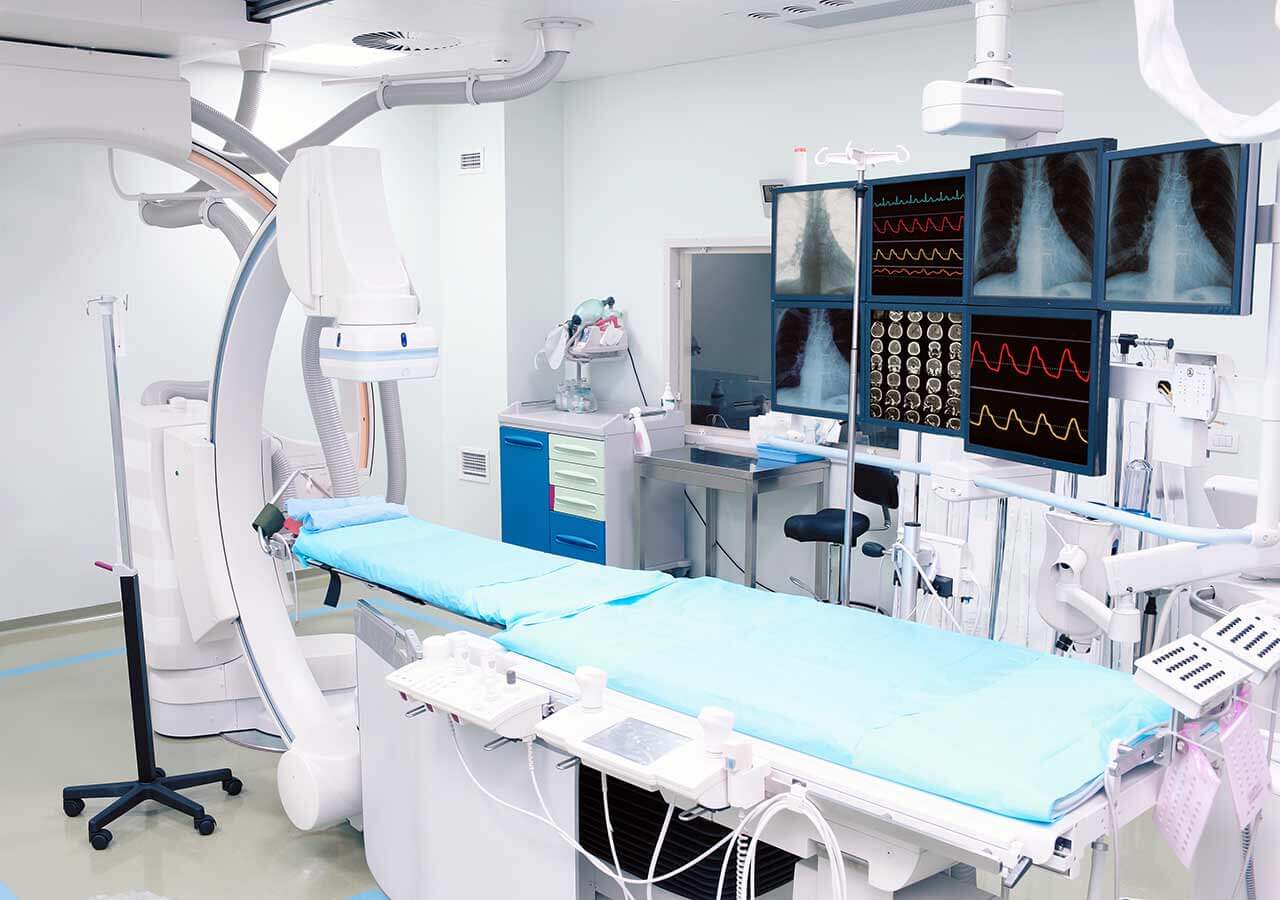
The program includes:
- Initial presentation in the clinic
- clinical history taking
- physical examination
- review of medical records
- otorhinolaryngological examination
- X-ray of the nasal region
- CT scan (on indication 650 €)
- nursing services
- consultation of related specialists
- consultation of the chief physician and all leading experts
- development of individual treatment plan
- written statement
Required documents
- Medical records
- X-ray and CT scan (if available)
Service
You may also book:
 BookingHealth Price from:
BookingHealth Price from:
About the department
The Department of Adult and Pediatric Otolaryngology at the University Hospital Jena offers the full range of diagnostics and treatment of diseases of the ear, nose and throat in accordance with the very latest medical standards. The department has been carrying out successful clinical activities for more than 120 years, and therefore it has a wealth of experience, effective therapies and unique developments in its area of specialization. The department has 48 beds, as well as 3 state-of-the-art operating rooms for various surgical interventions. In addition, the department is a certified Head and Neck Cancer Center (certificate of the German Cancer Aid "Deutsche Krebshilfe"). The department is headed by Prof. Dr. med. Orlando Guntinas-Lichius.
The surgical treatment of otolaryngologic diseases is provided using the cutting-edge technical devices, such as surgical microscopes, laser systems, devices for nerve ending stimulation in case of problems with the facial nerve, high definition (HD + 4K) flexible and rigid endoscopes, miniature endoscopes for salivary gland endoscopy, devices for argon plasma coagulation, neuronavigation computer systems in salivary gland endoscopy, etc.
The special department’s activities include the treatment of hearing impairment in children. The department's specialists have excellent qualifications in cochlear implantation, including adaptation of speech processes after the implantation of a cochlear implant. In the field of pediatric otolaryngology, the department's physicians most often deal with such pathologies as otitis, polyps, adenoids, hearing impairments in children, cleft lip and palate. Also, the tasks of pediatric otolaryngologists include hearing screening in newborns, which allows the doctors to exclude or confirm hearing problems, and eliminate them as soon as possible. The Section of Phoniatrics and Pedaudiology treats voice and speech disorders associated with the hearing impairments of perception and information processing, as well as deafness in adults in one and two ears.
The service range of the department includes:
- Diagnostic options
- Diagnostics of hearing impairments
- Pure tone audiometry
- Speech audiometry
- Supraliminal auditory tests (Fowler's test, SISI test, noise audiometry)
- Tympanometry and stapedius muscle reflex measurement
- Otoacoustic emission
- Registration of auditory evoked potentials (brainstem audiometry)
- Control and correction of hearing aid function
- Balance diagnostics
- Spontaneous, provocative, positional nystagmus
- Examination of the vestibular apparatus using thermal samples
- Rotational testing (using a special rotating chair)
- Diagnostics of otolithic pathology
- 2D video-oculography
- Electronystagmography
- Diagnostics of smell
- Tests for the identification and recognition of odor, as well as the subjective detection of the sensitivity threshold
- Olfactory chemical sensitivity tests
- Recording of olfactory and other chemosensory evoked potentials
- Diagnostics of taste receptors
- Assessment of taste abilities by the method of "3 drops"
- Split taste testing on the anterior and posterior parts of the tongue
- Recording of gustatory evoked potentials
- Anterior and posterior rhinomanometry
- Diagnostics of allergies
- Skin provocation test in allergic retinopathy
- Treatment of allergic rhinopathy
- Diagnostics of snoring
- Outpatient and inpatient screening examination
- Respiratory mask selection and therapy control with its help
- Electromyography
- Diagnostics of hearing impairments
- Otoplasty to correct protruding auricles
- Diagnostics and treatment of acoustic neuroma
- Method of active monitoring in benign neoplasms (especially in elderly patients)
- Surgical treatment
- Radiation therapy
- Diagnostics and treatment of aphasia
- Botulinum toxin therapy in:
- Blepharospasm
- Hemifacial spasm
- Hypertrophic mimic wrinkles
- Spasmodic dysphonia / laryngospasm
- Swallowing disorders in cricopharyngeal hypertrophy
- Frey's syndrome (after parotid gland surgery)
- Hypersalivation
- Crocodile tears syndrome
- Neuropathic pain after neck surgeries
- Middle ear surgery
- Chronic otitis
- Middle ear bone or eardrum injuries, including perforated eardrum
- Otosclerosis
- Cochlear implantation, including subsequent rehabilitation and speech process adaptation
- Implantation of hearing aids
- Diagnostics and treatment of dysphagia
- Use of epitheses in case of facial defects
- Diagnostics and treatment of facial paralysis
- Reconstructive and transplant interventions
- Botulinum toxin type A injections
- Special facial therapeutic exercises
- Diagnostics and treatment of hoarseness (conservative and surgical methods)
- Diagnostics and treatment of otolaryngologic diseases in children
- Newborn hearing screening
- Otitis
- Polyps and adenoids
- Tonsillectomy (tonsil removal) in recurrent acute tonsillitis
- Tonsillotomy in enlarged palatine tonsils
- Hearing impairments in children
- Cleft lip and palate
- Diagnostics and treatment of hearing impairments in adults
- Conservative therapy
- Drugs for the improvement of blood circulation
- Hearing aids
- Stress reduction
- Auditory training (for the restoration of lost skills)
- Autogenic treatment (for the elimination of tinnitus)
- Surgical methods
- Ear canal extension
- Tympanoplasty
- Partially implantable hearing aids
- Cochlear implants
- Conservative therapy
- Diagnostics and treatment of laryngeal papillomatosis
- Diagnostics and treatment of stuttering
- Diagnostics and treatment of olfactory disorders
- Laser surgery for the treatment of otolaryngologic tumors
- Laser tonsillectomy
- Myringoplasty
- Parotidectomy
- Tympanostomy tube placement
- Phonosurgery
- Reconstructive surgery
- Plastic surgery using local flaps
- Plastic surgery using pedicle flaps
- Plastic surgery using free grafts
- Diagnostics and treatment of swallowing disorders
- Diagnostics and treatment of dizziness
- Diagnostics and treatment of salivary gland tumors
- Diagnostics and treatment of speech disorders in adults and children
- Stapes plastic surgery
- Diagnostics and treatment of unilateral and bilateral vocal cord paralysis
- Diagnostics and treatment of ear noise (tinnitus)
- Diagnostics and treatment of tracheal stenosis
- Laser dilatation
- Stent implantation
- Surgical removal of the affected trachea and consolidation of the ends of the remaining trachea
- Transoral robotic surgery
- Diagnostics and treatment of Zenker's diverticulum
- Other medical services
Curriculum vitae
- 1987 - 1993 Study of Human Medicine at the University of Cologne.
- 1994 Doctoral thesis defense with honors (title of Dr. med.), Faculty of Medicine, University of Cologne. Subject: "Hypoglossal-facial nerve anastomosis in a rat".
- 1994 - 1995 Internship in the Department of Otolaryngology, University of Cologne.
- 1995 - 1998 Assistant Physician in the Department of Otolaryngology, University of Cologne.
- 1998 Specialization in Otolaryngology and additional qualifications in the treatment of voice and speech disorders.
- 2000 Additional qualifications in Plastic Surgery.
- 2001 Habilitation in Otolaryngology, Acting Head of the Department.
- 2002 Additional qualification in Allergology, responsible for radiation protection.
- 2003 Leading Senior Physician.
- 2004 Additional qualification in Special Otolaryngology.
- 2006 Extraordinary Professor at the University of Cologne; invitation to the position of W3 Professor in Otolaryngology, University of Jena; additional qualifications in the field of drug therapy of tumors.
- 2010 Appointment as a Deputy Dean for Teaching, re-election in 2014.
Awards and Honors
- 1989 Fritz ter Meer University Scholarship, Bavarian Working Group, Leverkusen.
- 2004 Award for the Scientific Achievements of the Faculty of Medicine at the University of Cologne for the best publication.
- 2006 Anton von Tröltsch Prize of the German Society of Otolaryngology, Head and Neck Surgery.
- 2009 Elected as a Member of the German National Academy of Sciences Leopoldina.
- 2013 Thüringer Forschungspreis Research Prize, 2012.
- 2014 George Davey Howells Memorial Prize.
- 2015 GMA-Prize for the Further Development of Teaching Activities.
Professional Memberships
- Since 1994 German Society of Otolaryngology, Head and Neck Surgery.
- Since 1995 German-Spanish Society of Otolaryngology.
- Since 2002 Sir Charles Bell Society.
- Since 1999, Working Group on the Use of Botulinum Toxin of the German Society of Neurology.
- Since 2005 Representative of the Working Group on Salivary Gland Diseases of the German Society of Otolaryngology.
- Since 2007 Thuringian Cancer Society (since 2009 Board Member).
- Since 2007 Head of the Working Group of the European Salivary Gland Society (ESGS).
- Since 2007 Chairman of the National Conference of Medical Directors in Thuringia.
- Since 2007 Member of the Advisory Council for Otolaryngology.
- Since 2008 Co-Editor of the Laryngo-Rhino-Otologie Journal.
- Since 2008 Representative of the Salivary Gland Subcommittee of the Working Group on the Development of Treatment Guidelines of the German Society of Otolaryngology.
- Since 2008 Member of CORLAS (Collegium Oto-Rhino-Laryngologicum Amicitiae Sacrum).
- Since 2009 Member of the German Cancer Society.
- Since 2009 Member of the German Academy of Sciences Leopoldina.
- Since 2016 Presidium Member of the German Society of Otolaryngology, Head and Neck Surgery.
Photo of the doctor: (c) Universitätsklinikum Jena
About hospital
According to the prestigious Focus magazine, the University Hospital Jena regularly ranks among the top German medical facilities!
The hospital has positioned itself as a multidisciplinary medical facility with a long history of more than 200 years. Since its foundation, the hospital has been constantly developing and modernizing, thanks to which nowadays it offers patients the highest level of treatment in Germany based on the use of innovative technologies and the very latest therapeutic techniques. The hospital consists of 26 specialized departments and 25 research institutes. It treats more than 53,600 inpatients and about 274,000 outpatients every year. The staff of the hospital includes more than 5,600 competent doctors.
The extensive resources of the university hospital, high treatment standards, and the introduction of new research developments provide first-class treatment in Germany meeting the stringent international standards. The hospital has an excellent reputation not only in Germany, but also far beyond its borders, due to which it accepts a large number of foreign patients for the diagnostics and treatment.
Despite the technical progress and the availability of accurate computerized systems, the patient’s physical health and emotional state is the main value of each employee of the hospital, since some diagnoses cause emotional distress in patients. The doctors of the hospital believe that the key to a successful result is a comprehensive and individual approach, so they spend a lot of time talking with patients, listen carefully to all their wishes and support at all stages of the therapeutic process. All this in combination with high-precision diagnostic techniques and the very latest types of therapy forms a solid basis for the achievement of an optimal treatment result.
Photo: (c) depositphotos
Accommodation in hospital
Patients rooms
The patients of the University Hospital Jena live in comfortable single and double rooms made in a modern design. Each patient room is equipped with an ensuite bathroom with shower and toilet. The room has enough space to store personal belongings, as well as a table and chairs for receiving visitors. A bedside table can be converted into a table so that patients can eat right in their bed. Each room has a TV, and there is also access to the Internet. In addition, the hospital offers enhanced-comfort rooms.
Meals and Menus
The patient and his accompanying person have a daily choice of three menus. If for some reason the patient does not eat all the foods, he will be offered an individual menu. Please inform the medical staff about your dietary preferences prior to the treatment.
Further details
Standard rooms include:
Religion
Religious services are available upon request.
Accompanying person
During the inpatient program, an accompanying person may stay with you in a room or at the hotel of your choice.
Hotel
During the outpatient program, you can live at a hotel of your choice. Managers will help you to choose the most suitable options.





